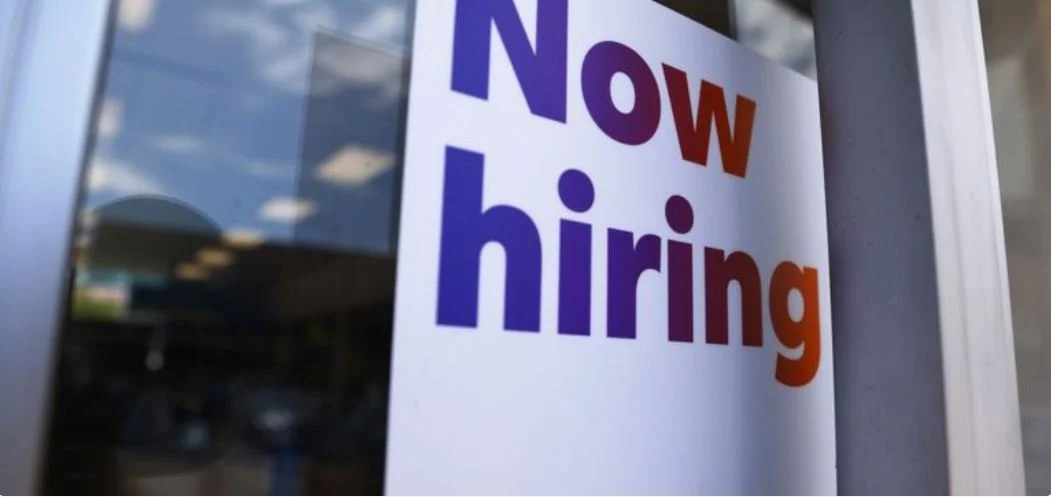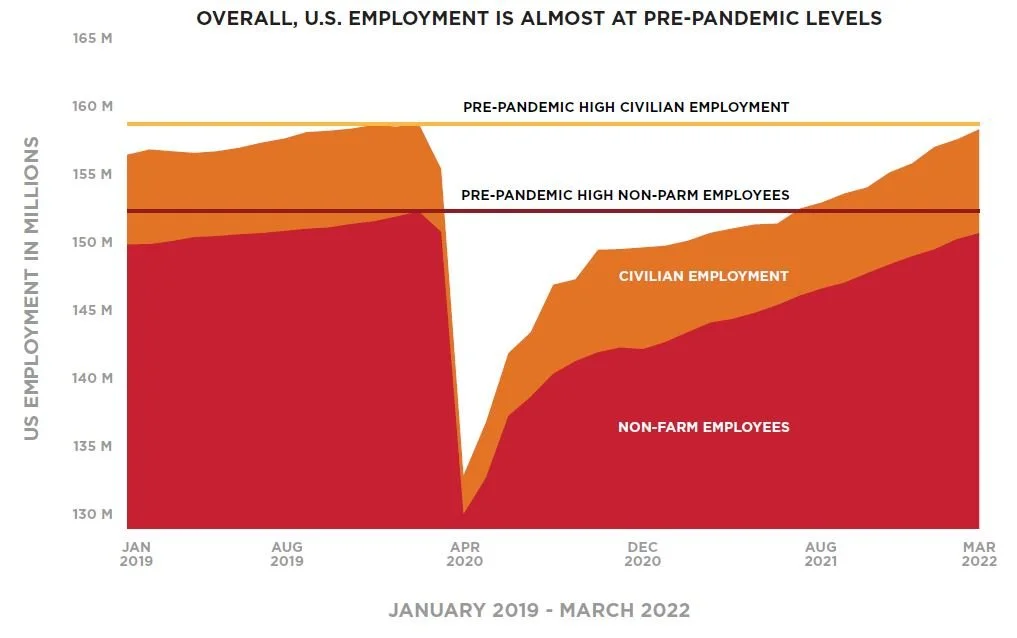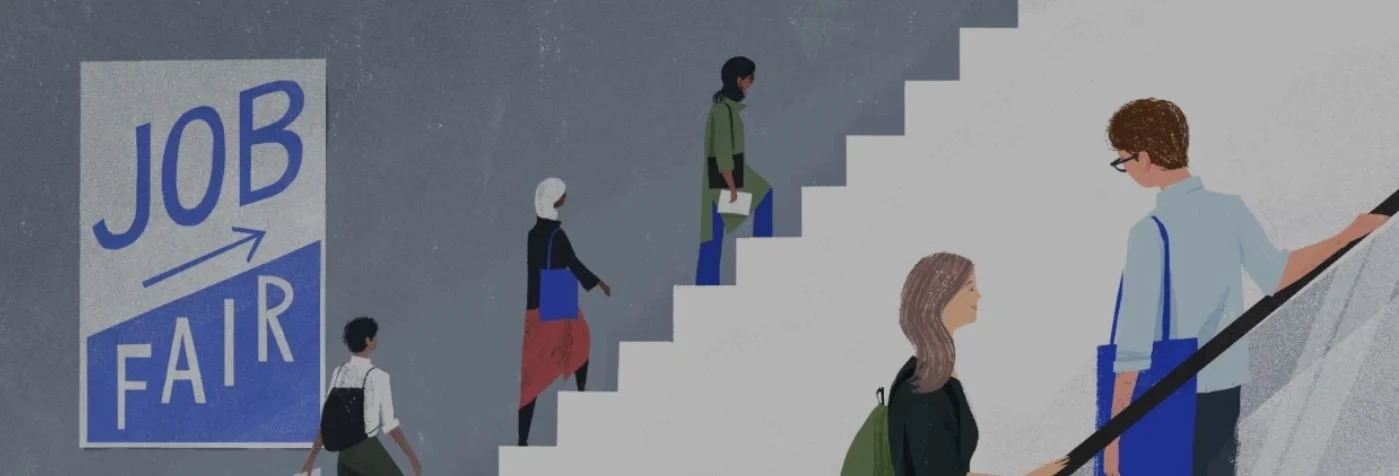News
Articles and op-eds featuring Burning Glass Institute research
Featured Articles
HR Dive: Despite ‘skills-based’ hiring push, employers overlook nontraditional candidates
HR Dive
Despite ‘skills-based’ hiring push, employers overlook nontraditional candidates
Recruiting tools and processes may fail to consider workers without a four-year degree, panelists said during a June 28 joint EEOC and OFCCP webinar.
Ryan Golden
Senior Reporter
Despite signs that employers are willing to prioritize skills over educational attainment when recruiting, candidates with nontraditional work backgrounds continue to be overlooked, according to panelists at a virtual event hosted Tuesday by the U.S. Equal Employment Opportunity Commission and Office of Federal Contract Compliance Programs.
A general trend over the past 20 years has seen businesses employ four-year degree requirements in their job descriptions, narrowing the field of potential candidates despite “hundreds of thousands of people” performing such jobs without a Bachelor’s degree…
AXIOS: America's New Labor Market
AXIOS
June 6, 2022
America’s New Labor Market
More warehouse workers, fewer waiters. More health store employees, fewer in public schools: the overall job market is nearly back to full strength, but it looks strikingly different.
Why it matters: Pandemic-era disruptions have shaken up the composition of the labor force — with big implications for how industries will have to adjust to a longer-term worker shortfall…
USA TODAY: US Economy on Brink of Recovering Pre-COVID-19 Job Numbers, but More Than Half of Industries Lag
US economy on brink of recovering pre-COVID-19 job numbers, but more than half of industries lag
The U.S. is on pace to recover all 22 million jobs wiped out in the COVID-19 recession as early as July, but the milestone will obscure sharp differences among industries and an economy transformed by the crisis.
Industries that have thrived during a pandemic that has kept Americans working and playing at home for long stretches – such as e-commerce, technology and professional services – already have reached or topped their pre-COVID-19 payrolls…
New Burning Glass Institute Report: Jobs Numbers Hide Significant Shifts in the Economy
New Burning Glass Institute Report: Jobs Numbers Hide Significant Shifts in the Economy
One in six U.S. industries have not recovered from a jobs decline of 10% or more post-pandemic
PHILADELPHIA, May 10, 2022 – The April jobs report shows that the post-pandemic recovery continues at pace, with the economy having add 428,000 jobs. But as The Burning Glass Institute’s latest report The Through-the-Looking-Glass Recovery illustrates, behind those growing numbers is the sobering fact that nearly one in six U.S. industries have not recovered from a jobs decline of 10% or more.
CNN Business Opinion: Spending on consumer goods will likely plummet in the second half of the year
With the fear of Covid-19 on the wane, consumers are spending much more on in-person services, like travel and entertainment, powering an impressive comeback in that sector. However, something has got to give. And that something is consumer spending on goods, like clothing, furniture, appliances and recreational equipment, which is in for a rough second half of 2022.
The Chronicle of Higher Education: The Uneven Climb From College to Career
Ask students why they go to college, and they cite one reason more often than any other: To get a better job.
Yet students’ chances of landing that good job after graduation aren’t created equal. Low-income students, students of color, and those who are the first in their families to go to college often have a tougher time finding a first job out of college and earn less than their more privileged peers.
Ellucian and The Burning Glass Institute to Collaborate on Data-Driven Insights to Inform Student Success
Ellucian and The Burning Glass Institute to Collaborate on Data-Driven Insights to Inform Student Success
World-class research and data analytics will enable higher education leaders to improve equitable student outcomes
The New York Times: A 4-Year Degree Isn’t Quite the Job Requirement It Used to Be
New research finds companies are starting to rely less on the college filter in hiring. But it remains an obstacle to opportunity for many.
As a middle school student in New York, Shekinah Griffith saw a television news report of President Barack Obama visiting an innovative school in Brooklyn. Its program included high school, an associate degree in a technical subject, an internship and the promise of a good job.
FORTUNE: These bipartisan solutions can help ease America’s labor crisis
For a nation yearning to rise above partisan rancor, 2022 brings great opportunity for consensus in advancing the mobility and skills of the American worker.
Progressives and conservatives, unions and industrialists, foreign policy hawks, and isolationists can all find common cause in the need for building a more competitive, skilled, and mobile U.S. workforce.
CNN Business: The labor shortage could lead to a recession next year
Over the past 12 months, US consumer prices rose by 7.5%, the highest rate in nearly 40 years. Worse, inflation is showing no signs of slowing.
The Federal Reserve typically fights inflation by raising interest rates, which slows the economy by reducing the demand for goods and services. Ideally, the rate increases are sufficient to slow inflation without leading to a recession. But the problem is that the Fed cannot precisely control the rate of economic growth. So with the central bank expected to raise rates next month, barring a major impact on the US economy from the war in Europe, the question remains: Can the Fed contain inflation without triggering a recession?
While we probably won't see a downturn this year, a recession next year is becoming increasingly likely, for a number of reasons.
Sacramento News & Review: Working together for better jobs, brighter future
California’s local workforce boards and a Sacramento-based nonprofit help people find good-paying jobs—and solve bigger social problems at the same time
Matching a local worker with a local business seems straightforward enough. But this seemingly simple act has ripple effects that can change an individual’s life, build a family’s generational wealth, and help end historical inequities. It can also impact the regional and state economy as more workers—and more business owners—choose to stay here.
Burning Glass Institute Launches to Track a Fast-Changing Labor Market
Burning Glass Institute Launches to Track a Fast-Changing Labor Market
Real-Time Labor Analytics Pioneer Matt Sigelman Creates New Nonprofit Advancing Research & Practice on Mobility, Opportunity & Equity
Working Nation Podcast: Work Green, Earn Green
Institute President Matt Sigelman discusses what makes a job green.













